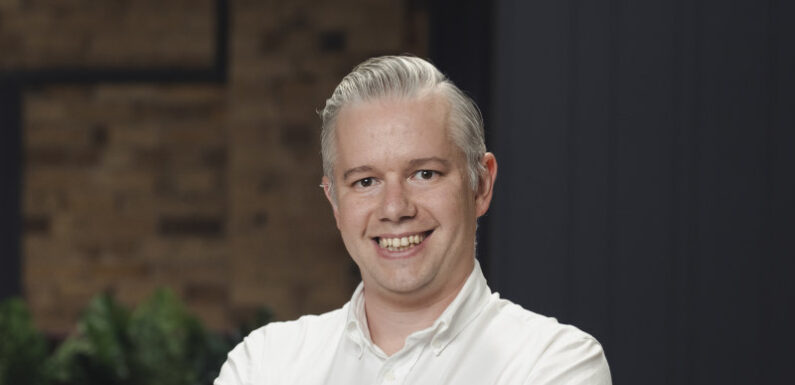
Save articles for later
Add articles to your saved list and come back to them any time.
When Nicholas Therkelsen-Terry co-founded Max Kelsen, a software engineering agency and AI consultancy, discussions about machine learning were only just beginning outside scientific circles. It was 2014, Google had recently acquired Deepmind, and Meta (then Facebook) had trained an algorithm to distinguish between human faces.
Nicholas Therkelsen-Terry, co-founder of Max Kelsen, says generative AI will transform the economy.Credit: Jamila Toderas
“We had this hypothesis that machine learning technologies were going to create a capability on top of data that businesses held,” he said, referring to himself and co-founder Ryan McStay.
“And so that’s really what we wanted to do, is build a team that was able to go and build those technologies for businesses that didn’t have the sort of technical pedigree and history that the likes of Google or Meta did.”
Today, generative AI models built on machine learning are the topics on everybody’s lips, and the Brisbane-based company has consulted on best practices as well as delivered machine learning solutions to companies across industries including mining, financial services, retail and healthcare.
Last month, the core of the business – its managed services and engineering divisions – was acquired by US-based consulting giant Bain & Company.
Therkelsen-Terry said Bain and Max Kelsen had long been working on the same problems from different directions – the former began with strategy, the latter with deep engineering – and it was exciting to integrate the team at what was a watershed moment for machine learning.
“[Generative AI] is the conversation dominating across a range of industries. We believe it will have a profound impact on the economy,” he said, while noting that didn’t necessarily mean jobs being automated or supplanted by AI.
“What we’re seeing is more about supercharging the capabilities of workers. We are seeing the focus of deployment across marketing, knowledge-based roles, admin tasks, IT and data management. A very large range of applications.”
For example, in customer contact or contact centres, Therkelsen-Terry said there was huge opportunity for generative AI. Over the past decade, automated customer service and chatbots have surged, but they’ve been very limited in what they could do.
“Obviously, now, generative AI gives us a lot more capability, so I think we’ll see a resurgence of those channels. Or it could be actually looking at the way that those conversations are happening between agents and customers, and analysing those and extracting really deep insights,” he said.
“The natural language capabilities of generative AI, not just in that generation sense but in the understanding sense, are really a big step change over the technologies we had even two or three years ago.”
All this means that the hallmarks of something like ChatGPT – including very natural speech, or multi-modality that allows for two-way communication in text as well as visuals – can now easily be integrated into a business’ services and technology. Imagine talking to a virtual assistant while shopping for shoes, and simply showing your shoes and saying, “I need more like this”. That may be similar to the promise of older chatbot models, but it’s now a reality.
“And that shop doesn’t have to build a shoe detection model. The ability to observe that shoe, and work out which shoe it is, is built into these models,” Therkelsen-Terry said.
“That trainingless nature is really what enables this generation of innovation. We could have done that before, but building the model probably wouldn’t have been worth the return on investment. Now we have these foundational models, we can build those sorts of capabilities very quickly. And that changes the value equation.”
But not all businesses Max Kelsen has worked with want a mere efficiency boost. They’re looking for future competitive advantages that could change the way industries work, and not just at the big end of town. Therkelsen-Terry said large companies have the depth of capability and problem sizes that drive them to adopt first, but across the economy digital natives are innovating and adapting.
“If you take a Canva, who’s integrating a lot of generative AI into their tooling, that’s ultimately helping SMEs [small and medium-sized enterprises] be faster and more nimble in the way that they create marketing materials for their customers,” he said.
“A lot of the dividends of the technology will accrue across the economy – from very small mum-and-pop businesses right up to very big enterprises. The digital native sector has just taken his technology with both hands and is absolutely running with it.”
Get news and reviews on technology, gadgets and gaming in our Technology newsletter every Friday. Sign up here.
Most Viewed in Technology
From our partners
Source: Read Full Article
